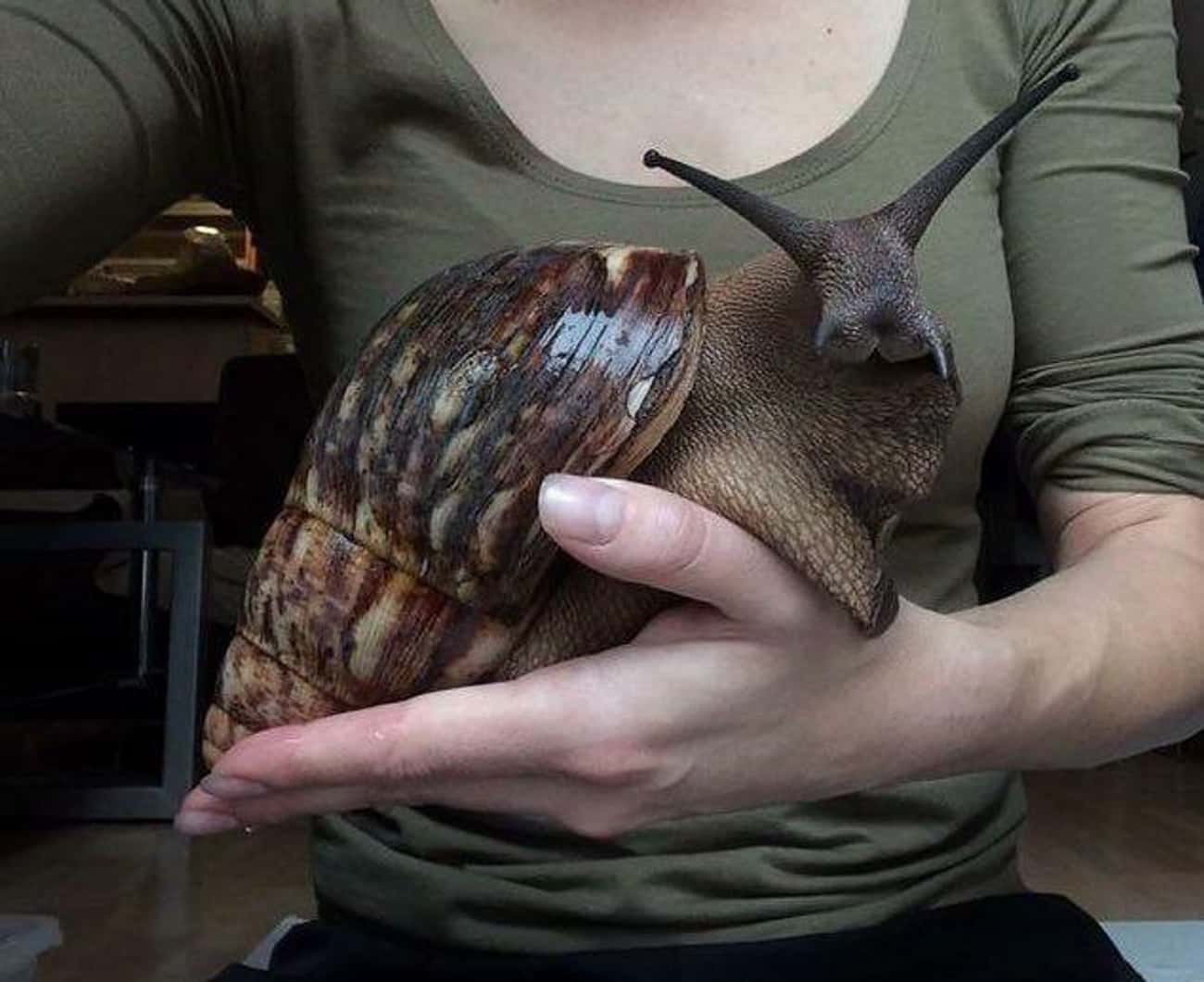There’s not much in the world that might be more disgusting than Lissachatina fulica. With its slime and probing feelers and… sorry. We should name this thing by what we, average people, understand it to be – the Giant African Snail.

This pest is known by many for how problematic it can be. First of all, it’s not located in some far-off land. It was introduced to Hawaii in 1936 and made landfall in the U.S. in 1966, making itself at home in small pockets ever since. Some folks believed that they would make good pets (commonly mishearing pest for pets apparently…). Others wanted to use them for educational purposes. Even when they weren’t brought deliberately, they could arrive in hiding among cargo entering the United States.
With their arrival, they proved not to be so innocent. They will feed on over 500 different plants and they can ruin lives as the rat lung worms they carry spread to both humans and animals alike, which can cause meningitis in those who are unfortunate enough to be in the wrong place at the wrong time. Isn’t that wild?
Because of the issues that they bring, the government has decided to eradicate the monstrous snails. K-9 detector dogs scour the areas that they live while folks painstakingly collect them and treat the areas that they have been found. As of October 8th, the Florida Department of Agriculture and Consumer Services reported collecting 168,538 specimens from 32 different locations of infestation encompassing thousands of properties. Yikes!
However, it doesn’t do much good to call it something that doesn’t connect with us. Have you noticed that when we name it something we don’t understand it to be, we distance ourselves from it and believe it to be less harmful that it really is? When I say Lissachatina fulica, someone may believe it is from some far-off land that cannot affect them. But if I call it a Floridian giant snail, the person recognizes the need to be watchful over their gardens – and even their own lives – because this pest can sneak up on you so slowly that you never realized it was there in the first place. These snails are like sin!

This situation made me think of passages like Isaiah 58. The Israelites were very angry that God had not blessed them when they fasted. But what did He say? Kaitlyn Schiess writes in The Liturgy of Politics: “God replies through the prophet that during their fasting they exploited their workers (v. 3), quarreled with one another (v. 4) instead of loosing the chains of injustice, setting the oppressed free (v. 6), sharing their food with the hungry, and providing shelter for the foreigner (v. 7).” These God-followers were being told that they lost sight of Him, followed the idol of ‘themselves’, and ignored His commands to actively and tangibly love those around them.
There are times that we, as modern-day American Christians, can read similar texts and falsely believe that idolatry only applies to wooden or stone trinkets that people in ancient times bowed down to. We call sin “sin” and believe that we, Christians, don’t have any because we’re not calling it what it is: selfishness, anger, hatred, anxiety, fear, etc. God, on the other hand, makes it abundantly clear that these idols were issues that modern-day Americans also struggle with – seeing others not as people in His image but as things to be used for our own benefit, abusiveness even to one another (let alone nonbelievers who are the explicit recipients of Jesus’s Great Commission) as opposed to His sacrificial lovingkindness, and caring for the marginalized who Jesus always drifted towards.
Whether Scripture or rotten pests that we notice far later than we’d prefer, we should be reminded that our snails, or sins, can creep up on us so slowly that we never notice them until they’re large enough to devour. In the case of snails, they can devour our resources or end our lives. In the case of our sin, it can devour our testimonies to a world who should see an infinitely good Savior. We can be so overcome by selfishness, anger, hatred, anxiety, fear, etc., that the world sees our idols as opposed to our loving Father.
I hope the snail may be as wonderful a reminder to you as it was to me – let’s kill our snails/sins before they begin to control us.
Love you all,
Young Adult Minister – Evan McNeff